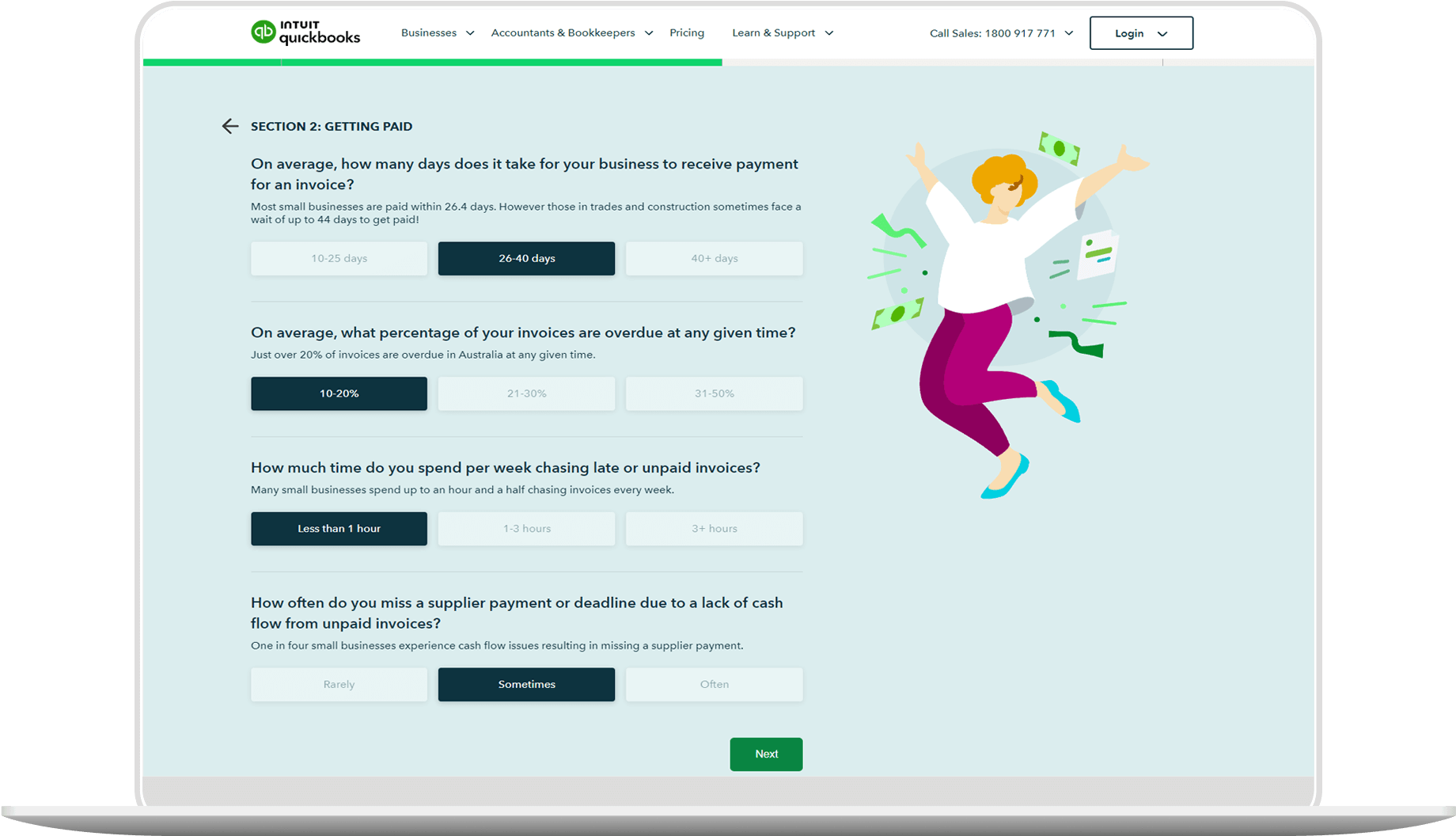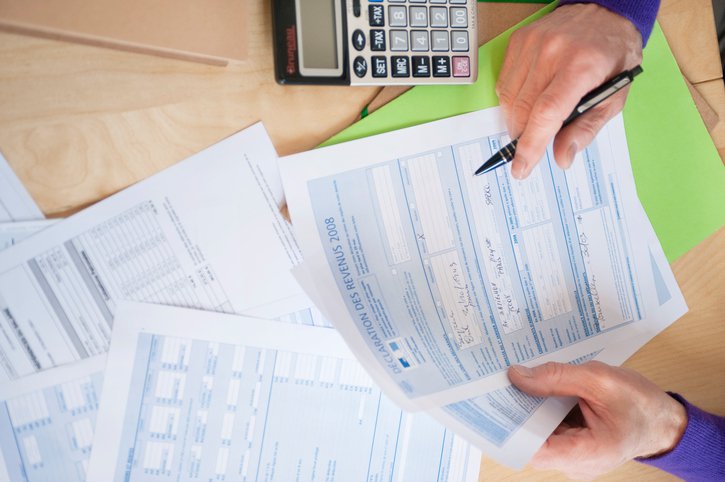If you work as a contractor it’s important to understand your contractor tax obligations to ensure you remain compliant with the requirements of the Australian Taxation Office (ATO). If you work for someone, but you’re not an employee, you’re considered an independent contractor. We’ve put together this guide on contractor tax to help you determine your tax obligations.

Guide to contractor tax: understanding tax obligations as a contractor
What is a contractor?
It’s important to distinguish contractors from regular employees for tax purposes. According to the ATO, an independent contractor can be a sole trader or a person working in their own company, partnership or trust. Therefore, a contractor is a self-employed individual registered as a sole trader. Contractors may also call themselves:
- Freelancers
- Consultants
- Solopreneur
- Entrepreneur
- Sub-contractor
- Subbie
Contractor tax obligations
There are some unique tax obligations for contractors. Let’s take a closer look so that you can better understand how to pay tax as a contractor in Australia.
Does a contractor need an ABN?
Yes, to work as a contractor within Australia, you’ll need an Australian Business Number (ABN). You’ll need it to invoice your clients, otherwise they’re obligated to withhold 47% of your total payment for tax. Your ABN also makes it easy for you to communicate with the government and comply with your tax obligations in your tax return at the end of the financial year (EOFY).
Do you need to pay income tax as a contractor?
Contractors and sole traders are subject to the same income tax rates and tax brackets as resident individuals. Therefore, if you earn more than the tax-free threshold as a contractor – that is, $18,200 – in the financial year, you’re required to pay income tax. Read our guide to income tax or use QuickBooks free income tax calculator to estimate your taxable income as a contractor.
Australia’s tax system is progressive, so the amount of tax you pay will depend on how much you earn. The more you earn, the higher the rate of tax. Read our guide on tax rates and tax brackets in Australia to learn more about the tax rate that applies to you.
How to pay tax as a contractor in Australia
Because you’re not considered an employee, income tax isn’t automatically deducted from your pay on a pay-as-you-go (PAYG) basis. As a contractor you’re obligated to keep aside the amount of tax you expect you’ll have to pay the ATO at the end of the financial year.You’ll need to lodge an income tax return declaring all the income you’ve earned as a contractor and the expenses you have incurred.
To keep things in order, you might consider opening a separate business bank account, where you can transfer the correct proportion of tax owed from each invoice you issue. If you’re working a lot, keeping track of your invoices and tax payable manually throughout the year can be time-consuming. Fortunately, you can simplify the process by investing in accounting software that does the calculations for you. For example, QuickBooks Self-Employed connects straight to your bank account to easily track and categorise business income.

Do contractors need to pay superannuation?
While making superannuation contributions isn’t a legal requirement when you’re self-employed, it is wise to put money aside for your retirement regardless. This will ensure that you will have enough money to live comfortably on when you reach retirement age.
To incentivise low or middle-income contractors to make personal super contributions, the Australian government offers a co-contribution scheme. If you meet certain requirements and make a personal, after-tax contribution, the government will make a co-contribution of up to $500 at the end of each financial year. You don’t need to apply for this scheme as it will be automatically processed when you lodge your tax return.
Do contractors have to pay the Medicare levy?
Since contractors are subject to the same income tax rates and brackets as individual residents, contractors are also required to pay the Medicare levy which is levied at 2% of the taxable income. Depending on the circumstances of your spouse you may be entitled to a reduction or exemption. In addition to the base Medicare levy, contractors may also be subject to the Medicare Levy Surcharge (MLS) if you earn over $93,000 (single taxpayers) or $186,000 (for families) and don’t have private hospital cover.
Do contractors need to register for GST (Goods & Services Tax)?
Contractors who earn over $75,000 annually will need to register for GST. Registering for GST means you will have to charge your clients a 10% GST and will be required to pass this additional income to the ATO. Read our GST registration guide to learn how to register for GST.
Can contractors claim business tax deductions?
If you incur business expenses as a contractor, you may be eligible to claim tax deductions for those expenses. Learn more about tax deductions for sole traders to see what you can claim in your tax return.
QuickBooks has useful resources on tax deduction tips for self-employed contractors. Contractors work across a variety of industries and hybrid roles. Read our tax deduction tips that suit the field you work in to make the most of your deductions at tax time:
Do contractors need to pay their student loans?
Unlike being a permanent employee where your employer makes student loan deductions, contractors take on the responsibility for managing student loan deductions from their personal income. You’ll need to calculate and set aside money to pay your student loan yourself.
Payroll tax and contractors
As a sole trader, you can employ people. If you have employees as a contractor, you may have a contractor payroll tax obligation. Payroll tax is a state or territory tax on the wages you pay as an employer. For example, payments made to contractors are liable for payroll tax in NSW if the contractor is engaged under a “relevant contract” under the Payroll Tax Act 2007 (NSW).
It may be worth having a lawyer or tax professional review your contract with your employee to help you determine if that employee/contractor is engaged under a relevant contract. This will help you determine if you are liable for payroll tax for contractors.
Contractor vs employee tax obligations: what is the difference between contractors and employees when it comes to tax?
When it comes to tax obligations, contractors have different obligations compared to employees. The table below provides a summary of the differences between contractor tax obligations and employee tax obligations.
|
Tax Obligation |
Contractor |
Employee |
|
Registering for an ABN |
Contractors need to create an ABN. |
Employees do not need to create an ABN, they can get paid through their Tax File Number. |
|
Income Tax Liability |
Contractors are subject to income tax under the same personal income tax rates applicable to resident individuals (employees). |
Employees pay income tax subject to the personal income tax rates applicable to resident individuals. |
|
Withholding Tax |
Contractors need to withhold tax themselves and ensure they are calculating money and putting money aside for tax. |
Employers withhold tax on a PAYG basis from employees wages or salary. |
|
Superannuation Contributions |
It is not mandatory for contractors to make compulsory superannuation contributions. However, contractors may elect to make voluntary contributions into their superfund. |
Employers withhold superannuation contributions on a PAYG basis from employees wages or salary. |
|
Medicare Levy |
Contractors are liable for the Medicare levy. The MLS may apply in certain circumstances. |
Employees are liable for the Medicare levy. The MLS may apply in certain circumstances. |
|
Registering for GST |
Contractors need to register for GST once their annual turnover exceeds the GST registration threshold of $75,000. |
Regular employees who are not employed through an ABN do not need to register for GST. |
|
Claiming Tax Deductions |
Contractors are eligible to claim tax deductions for certain applicable business expenses. |
Regular employees who are not a registered business are not eligible to claim ‘business expenses’ as tax deductions. However, employees can claim certain tax deductions such as working from home expenses. |
|
Student Loans Deductions |
Contractors have the responsibility of making student loan contributions themselves. |
Employers withhold student loan contributions if the employee elects this on their Tax File Declaration form. |
How QuickBooks helps contractors at tax time
QuickBooks Self-Employed is accounting software that can help contractors, sole traders and freelancers save time by tracking and categorising business income as well as expenses. It connects directly to your bank account, so you don't have to manually enter your transactions. QuickBooks also calculates your taxes for you, so you don't have to worry about doing it yourself.
Here are some of the ways QuickBooks can save you time and help you prepare for tax season:
- Automatic transaction tracking: QuickBooks automatically tracks your income and expenses, so you don't have to manually enter them.
- Tax calculations: QuickBooks calculates your taxes for you, so you don't have to worry about doing it yourself. Track your GST, and snap and save receipts from our mobile app to maximise deductions and stay compliant.
- Invoicing: QuickBooks can create and help you send invoices, so you don't have to do it manually.
- Reporting: QuickBooks can generate reports on your income, expenses, and taxes, so you can easily see how your business is doing.
If you're a contractor, QuickBooks Self-Employed is a great way to save time and simplify your finances. That's how you do business differently.
FAQs
Related Articles

TAKE A NO-COMMITMENT TEST DRIVE
Your free 30-day trial awaits
Our customers save an average of 9 hours per week with QuickBooks invoicing*
By entering your email, you are agree to our Terms and acknowledge our Privacy Statement.


















